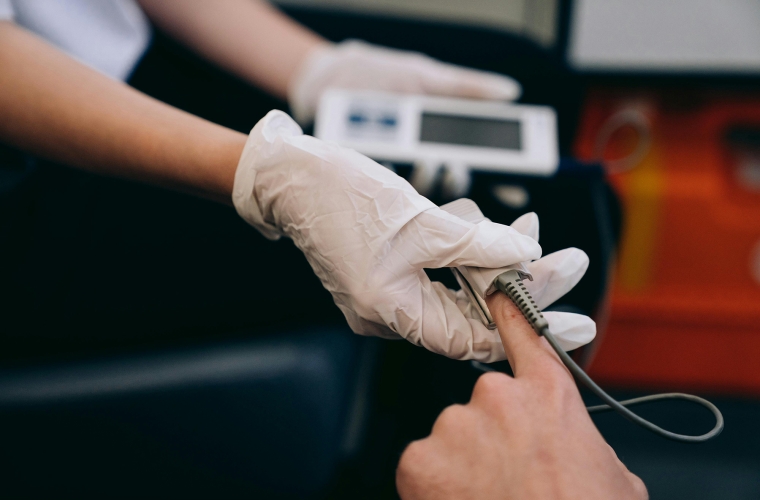Internal DEI research grants
Mentorship benefits
It is well known that mentorship provides benefits to both mentor and mentee such as career advancement, increased rate of promotion, psychosocial support, and increased academic productivity. Additionally, mentorship has the potential to help alleviate many of the gender and ethnic disparities that are still pervasive in medicine. However, studies have found that physicians who are women and/or from underrepresented in medicine backgrounds often face barriers in obtaining adequate mentorship.
Despite the known benefits of mentorship and the barriers to achieving mentorship, there is a relative paucity of anesthesia-specific literature related to mentorship. To our knowledge, no larger survey exists querying anesthesiologists on their experiences with mentorship.
We aim to study the prevalence of mentor-mentee relationships and to understand how a mentor and mentee pick each other in anesthesia with the goal of identifying key socio-demographics that are linked to the choice of mentor-mentee and both facilitators and barriers to finding mentorship. Additionally, better understanding the barriers certain groups of anesthesiologists face in finding mentorship may help structure mentorship programs to make mentorship more accessible and equitable in the field of anesthesia.
Mentorship benefits grant team
Intrinsic race and ethnicity
Dr. Cobert, an anesthesiologist and intensivist at the SF VAMC, recently received a Society of Critical Care Medicine Weil Research Award. This award aims to create fair and debiased mortality risk prediction algorithms using text-based data from patients in the intensive care unit. Biased data used for risk prediction can lead to unfair and inequitable algorithms, as seen in examples of bias and prejudice in artificial intelligence models in non-medical contexts. Natural language processing algorithms have also shown bias and prejudicial outputs, raising concerns about the potential transmission of disparities and perpetuation of inequities in healthcare.
In this project, Dr. Cobert and his team will investigate how text encodes intrinsic race and ethnicity information that could contribute to biased AI algorithms if left unaddressed. The research will focus on whether explicit (e.g. “Black”) and implicit aspects (e.g. “Spanish-speaking”) in clinical notes are predictive of social constructs, such as race and ethnicity. Implicit descriptors that indicate contextual relationships between words may also encode patterns related to race or ethnicity. By understanding how language can encode for social constructs and potentially perpetuate biases, the team aims to demonstrate that clinical notes are not immune to human biases and that structural racism can exist in language itself.
To ensure that NLP-based clinical prediction tools do not contribute to a racist healthcare structure, the team will identify and eliminate structurally racist and racialized elements from clinical notes. By debiasing the notes, they will then construct mortality prediction models to evaluate the impact on predictive performance. This research will inform interventions to promote antiracism in note writing processes and create fair and equitable algorithms for risk prediction in the ICU.
Intrinsic race and ethnicity grant team
LGBT patients grant
We are aiming for a multipronged approach to improving the care for our LGBT patients in the perioperative period. In parallel, we will (1) carry out a scoping review on this topic, (2) perform structured interviews with perioperative care professionals and patients, and (3) increase education and awareness among our current teams. The scoping review will involve experts across more than one institution and will help identify not only best practices but also gaps in knowledge. Our structured interviews will highlight the current state of our own clinical system, which will allow us to target specific areas for improvement while supporting the current strengths. Educational initiatives will be focused on the entire perioperative spectrum from the preop team to learners and more.
There will be an initial focus on patients coming for gender-affirming surgical care before broadening to patients who identify as LGBT and are coming for any procedure/surgery.
LGBT patients grant team
Pilot study to establish bias-free metrics for trainee physician performance
My project focuses on finding performance metrics that truly reflect the performance of trainee physicians, striving for equity in terms of their cultural and racial backgrounds. The project needs to start with a survey of existent metrics, and then to develop a pilot study looking at new metrics which interrogate the performance of URM residents admitted to training programs (we can start with anesthesiology, but this can be generalized to other medical specialties as well). "Traditional" metrics - such as test scores, in training exams, and even performance evaluations/patient satisfaction scores that assume traditional tropes of communication and cultural assumptions - may not accurately reflect true (ie bias-free) performance and quality. So part of this study will be an examination - and validation - of new metrics.
These metrics could be 360 evaluations, patient satisfaction surveys with ethnicity-concordant patients and/or HCWs working with these trainees, or something else. It would be a great opportunity to create a bias-free set of performance measurements, and in the process allow for improvement measurements of trainee performance.
I am interested in connecting with residents and fellows with career aspirations in medical education, URM/DEI issues, and MedEd qualitative measurements, who can help with this project.
If you are interested in collaborating on this project please email Ludwig Lin.







